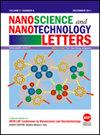miR-199a-3p Inhibitor Delivered Through Nano-Drug Delivery Systems Suppresses Tumor Cell Survival and Metastasis
引用次数: 0
Abstract
Gastric cancer (GC) is a life-threatening malignant tumor present in the digestive tract. In this study the connection of miR-199a-3p, which is a gene abnormally expressed in GC, was analyzed along with the pathological parameters as well as the prognosis of GC patients. Moreover, the influence of miR-199a-3p inhibitor delivered through the nano-drug delivery system (NDDS) was studied in regard of GC cell survival and metastasis, seeking to reveal its potential treatment effect. During the conduction of the study, high miR-199a-3p expression was detected in GC tissues, sera, and cells along with its value for GC screening and pathological progression. In molecular research, polylactic-glycolic acid (PLGA) nanoparticles (NPs)-miRNA complexes that shaped like symmetrical spheres under the scanning electron microscope (SEM) were prepared to increase or decrease the levels of miR-199a-3p. The GC cell survival and metastasis was remarkably facilitated by the elevated miR-199a-3p, and its knockdown produced an opposite effect to markedly inhibit GC cell survival and metastasis. In conclusion, the expression in GC patients was increased by miR-199a-3p and the ability of its inhibitor delivered through the NDDS was demonstrated to control the survival and metastasis of GC cells.通过纳米药物递送系统递送miR-199a-3p抑制剂抑制肿瘤细胞存活和转移
癌症是一种存在于消化道中的危及生命的恶性肿瘤。在这项研究中,分析了胃癌中异常表达的miR-199a-3p基因与胃癌患者的病理参数和预后之间的联系。此外,还研究了通过纳米药物递送系统(NDDS)递送的miR-199a-3p抑制剂对GC细胞存活和转移的影响,试图揭示其潜在的治疗效果。在研究过程中,在GC组织、血清和细胞中检测到miR-199a-3p的高表达,以及其对GC筛查和病理进展的价值。在分子研究中,聚乳酸(PLGA)纳米颗粒(NPs)-miRNA复合物在扫描电子显微镜(SEM)下被制备成对称球形,以增加或降低miR-199a-3p的水平。miR-199a-3p的升高显著促进了GC细胞的生存和转移,其敲低产生了显著抑制GC细胞生存和转移的相反作用。总之,miR-199a-3p在GC患者中的表达增加,并且其抑制剂通过NDDS递送的能力被证明可以控制GC细胞的存活和转移。
本文章由计算机程序翻译,如有差异,请以英文原文为准。
求助全文
约1分钟内获得全文
求助全文
来源期刊

Nanoscience and Nanotechnology Letters
Physical, Chemical & Earth Sciences-MATERIALS SCIENCE, MULTIDISCIPLINARY
自引率
0.00%
发文量
0
审稿时长
2.6 months
 求助内容:
求助内容: 应助结果提醒方式:
应助结果提醒方式:


